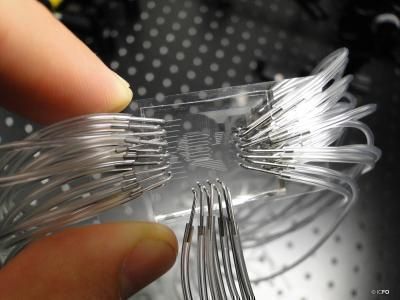Russian Researchers Have Developed Technology for Early Detection of Cancer
He formation of the first Cancer Cell in The Human Body, When the Disease is iron facts from Causing Irreversible Damage, May Soon Be Discovered Thanks to An innovative Technology Created by Biological Engineers at the National Research Nuclear University Mephi in Moscow. Researchers at Mephi's Biological Nanoengineering Laboratory Have Developed a Nanoprobe That, After Being Interted Into The Body, is able to detect and attack Certain Cancer Cells So that they are identified and Ready to be right. Mikhail Strijánov, President of Mepi, The Prestigious Russian University Bethaeen Whose Walls Six Six Nobel Lauretes in Physics Have World, Has Favorred in Recent Years to aggregate Researchers by Engaging Them in the Field of Nanomedicine To Create Tiny "Shuttles" for use therapies capable of Transporting Drugs Inside Cancer Cells, Aimed at Reducing Side Effects and Maximizing the Effectiveness of Molecules Introduced. These Smart Nanoprobes Act AS Tiny "Charon" Capable of Ferrying Drugs Into the Tumor, and that is a Radioactive Nucleus that lives Only a Few Hours Attacking The Tumor, Irraiating It for A Limited Time and then Becoming Harmless to the Patient, Agad Irina Zavestóvskaya , Director of the Institute of Engineering, Physics and Biomedicine, Which is Integrated Into the Mephi Facility.
Once Inside, As "Trojan Horses," Nanoprobes Will Be Able to Release The Radiopharmaceutical in A Targeted Manner. Research is currently focused on "right stop" recognition system for nanoshuttles, methods to open biological doors for them, and keys to overcome barriers. The Researchers ’ Aim to bring nanomedical Research Toward at Clinical Application for Human Health with the nanoprobe System in a Maximum Term of Two to Three Years, when all clinical trials will be concluded. It is the new frontier of oncology Research, Explains Giovanni D'Agata, President of the "Rights Desk": Vectors Bethaeen 20 and 500 Nanometers (One Billionth of a meter) Capable of Carrying Both Traditional Chemotherapy Drugs and Biological Drugs, Such As nucleic acids and proteins.



